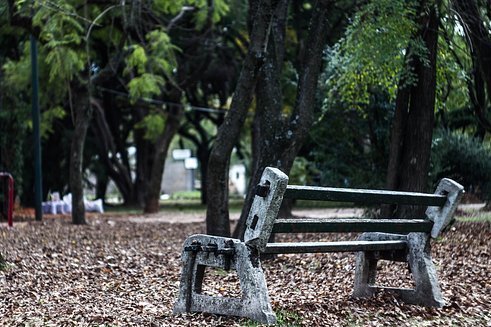

A Turning Point
On 26th June 2003 my wife underwent what was supposed to be a fairly routine operation. The months prior to this had already been difficult. She was in more and more pain, which meant she spent all day on the coach, sleeping fitfully. Several times we were obliged to call doctors in the middle of the night, even the night before the operation. All this took place in Paris during the longest and hottest summer in living memory.
So when I arrived at the hospital the next day, confidently expecting her to be recovering from a successful operation, I was first surprised to learn that she had been moved to a general ward. When I finally found her she said that she had bad news: she had cancer. Typically, she was most concerned about me and our son. It was a shattering blow, but I remember telling her that I was stronger than she thought. There was certainly some bravura in what I said but it turned out to be truer than I could have known at the time.
This is not the place to narrate everything that took place thereafter, even if I could: suffice it to say that she died exactly two months later. Subsequently I found myself without a job (the company I worked for went out of business). After months of administrative complications I managed to buy a flat and organize the move. In the space of seven months my life had been turned upside down.
But that is only the external side. Something else, much more important, took place within me. As I look back on that time I can say that however terrible it was (for me, but much more so for my wife) it was not negative. First of all, and in a sense quite naturally, I had to accompany my wife as best I could through her ordeal. This required maintaining a certain calm, doing whatever chores were necessary and just being with her in hospital – for many hours in the day and latterly during two long and arduous nights until the hospital staff told me I should also look after myself. I felt – and I was – powerless in face of the rapid approach of death: simply being there was all I could offer and she herself appreciated it. Any disarray in myself, and there were some very bleak moments, I kept to myself.
Immediately after she died I had to face a multitude of administrative tasks: documents to obtain, several pensions and so on to set in motion… I would begin each day with a long list of things to do: letters to write, telephone calls to make, appointments and so on. Tasks not completed that day went onto the next day’s list. I discovered that being organized (preparing for a telephone call or a meeting for example) has a positive effect. I came to see the importance of being methodical, keeping an eye on all documents, being as meticulous as possible and putting nothing off. I tried to avoid impulsive decisions over what to discard and what to preserve, sifting through photographs, clothes and other objects. Sometimes I had to be quite firm with my son. I discovered a hitherto unsuspected stubbornness: in the face of any difficulty I did not give up but on the contrary became even more determined.
Another revelation: it is possible to be more active in the face of difficulties. For example, as the preparations to move advanced, boxes piled everywhere restricting the simplest movements around the flat with an associated disorder inside, I decided to prepare a meal with the intention of being as quiet as possible, making only the most necessary movements. An inner order established itself quite naturally.
That tumultuous time is now in the past but in an important sense it is always with me, and I’m grateful for that.
Julian Arloff